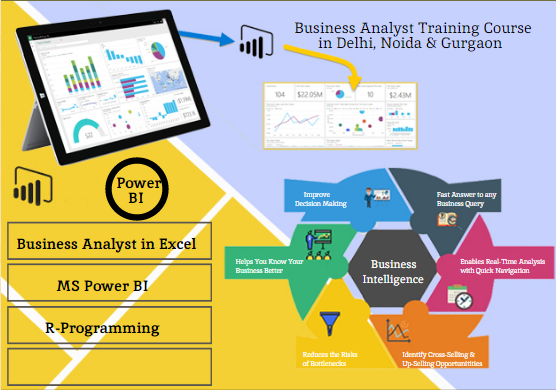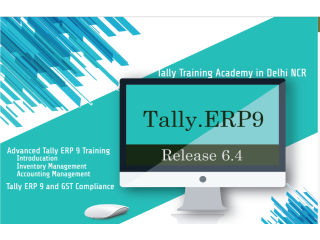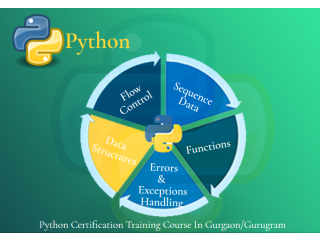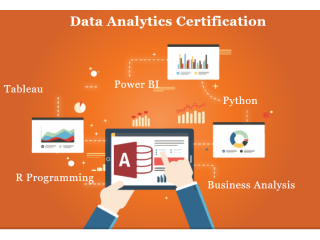How do you choose the right machine learning model in Business Analytics for a problem? Updated and #1 Institute for Business Analyst Course in Delhi, Professional
2 months ago Learning Delhi 21 viewsLocation: Delhi
Price: Contact us Negotiable
Machine learning (ML) plays a crucial role in Business Analytics, helping organizations make data-driven decisions. Selecting the right ML model for a business problem requires understanding data type, business objectives, and model complexity.
Business Analyst Course in Delhi
Heres a structured approach to choosing the best model:
1. Define the Business Problem and Data Type
The first step is to clearly define the problem. Business analytics problems typically fall into three categories:
- Classification (e.g., fraud detection, customer segmentation)
- Regression (e.g., sales forecasting, price prediction)
- Clustering (e.g., customer behavior analysis, market segmentation)
Understanding whether the target variable is categorical (classification) or continuous (regression) helps in narrowing down model choices. Business Analyst Training Course in Delhi
2. Consider the Complexity and Interpretability of the Model
- Simple models (Logistic Regression, Decision Trees) are easier to interpret and useful for insights in finance, healthcare, and retail.
- Complex models (Random Forest, Neural Networks, XGBoost) offer high accuracy but require more computation and may act as "black boxes," making them harder to explain.
If interpretability is key (e.g., regulatory environments like banking), Linear Regression or Decision Trees are preferable. If accuracy is the priority, Gradient Boosting or Deep Learning might be better.
3. Evaluate Data Availability and Volume
- If data is limited, simpler models like Logistic Regression or Decision Trees work well.
- If large datasets are available, deep learning models like Neural Networks or Random Forest can provide better performance.
For example, retail businesses analyzing customer purchases may use a Decision Tree, while e-commerce platforms with millions of transactions may opt for a Neural Network for personalized recommendations.
4. Test and Validate Model Performance
After selecting a model, it's essential to evaluate its performance using metrics such as:
- Accuracy, Precision, Recall, and F1-score for classification problems
- Mean Absolute Error (MAE) or Root Mean Square Error (RMSE) for regression problems
- Silhouette Score for clustering problems
Cross-validation and A/B testing help fine-tune the model for optimal performance.
SLA Consultants India: Best Business Analyst Course in Delhi (110065)
For professionals in Delhi (110065) looking to learn ML for Business Analytics, SLA Consultants India offers a comprehensive Business Analyst Certification Course in Delhi covering Excel, SQL, Power BI, Tableau, Python, and Machine Learning with 100% job placement assistance.
Conclusion
Choosing the right machine learning model in Business Analytics depends on the problem type, data volume, and business needs. By following a structured approach and testing different models, businesses can maximize efficiency and accuracy. SLA Consultants India provides the necessary skills to master ML in Business Analytics for real-world applications. For more details visit here at: https://www.slaconsultantsindia.com/business-analyst-training-course.aspx
Business Analyst Training Course Modules
Module 1 - Basic and Advanced Excel With Dashboard and Excel Analytics
Module 2 - VBA / Macros - Automation Reporting, User Form and Dashboard
Module 4 - Tableau | MS Power BI BI & Data Visualization
Module 5 - Python | R Programing BI & Data Visualization
Module 6 - Python Data Science and Machine Learning - 100% Free in Offer - by IIT/NIT Alumni Trainer
Contact Us:
SLA Consultants India
82-83, 3rd Floor, Vijay Block,
Above Titan Eye Shop,
Metro Pillar No. 52,
Laxmi Nagar,New Delhi,110092
Call +91- 8700575874
E-Mail: hr@slaconsultantsindia.com
Website: https://www.slaconsultantsindia.com/















